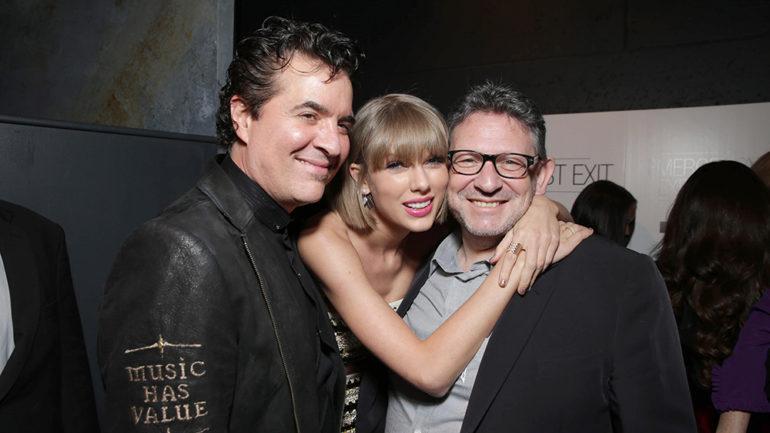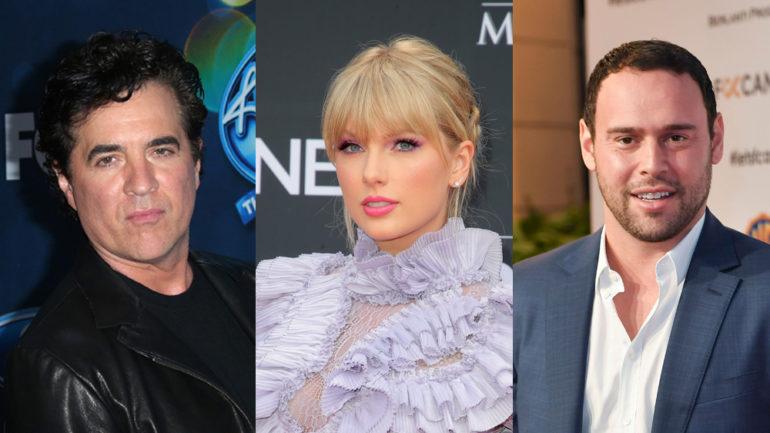Taylor Swift’s Masters, Scooter Braun’s ‘Bullying’: Inside the Big Machine-Ithaca Deal
By Jem Aswad
LOS ANGELES (Variety.com) – You could almost call it Masterpiece Theater. Following an early Sunday morning announcement that Scooter Braun’s Ithaca Holdings had acquired Scott Borchetta’s Big Machine Records for a reported $300 million, Taylor Swift posted an impassioned social media post in which she described feeling “sad and grossed out” by the deal, which includes the rights to her entire catalog up through 2017’s “Reputation.” She called the agreement “my worst case scenario.”
“For years I asked, pleaded for a chance to own my work,” the post begins. “Instead I was given an opportunity to sign back up to Big Machine Records and ‘earn’ one album back at a time, one for every new one I turned in. I walked away because I knew once I signed that contract, would sell the label, thereby selling me and my future. I had to make the excruciating choice to leave behind my past.”
In the hours following the news break, much speculation has surrounded the squabble, namely: why would Borchetta, who long claimed that he discovered Swift and helped develop her into a global superstar, put himself at odds with the much-beloved music-maker and the person to whom he pledged loyalty years ago? And at the same time, why would Braun, who’s built a reputation for being a good guy, allow his credibility to be singed? Those questions, and many more, answered below.
Did know about the sale? Sources close to all three parties differ on the issue of a pre-announcement text by Borchetta. At least three insiders say Borchetta sent a message letting Swift know the Wall Street Journal would be publishing a story on Sunday morning announcing the Ithaca-Big Machine deal, to which she did not respond. A source close to Swift says, whatever may have been sent, the singer was telling it like it is when she wrote that she first learned the news from media reports about it Sunday.
In addition, there’s the question of Scott Swift, the singer’s father, who owns a minority share in Big Machine — wouldn’t he be aware a sale was imminent? “He wasn’t at the [June 25] board meeting,” says an insider, who contends that Scott Swift instead had a proxy included in a conference call between Big Machine shareholders last Tuesday.
A spokesperson for Swift has responded to the suggestion, denying that her father is even on the board, and saying that he deliberately stayed off the last shareholder call for legal reasons.
“Scott Swift is not on the board of directors and has never been,” said the spokesperson. “On June 25, there was a shareholder phone call that Scott Swift did not participate in, due to a very strict NDA that bound all shareholders and prohibited any discussion at all without risk of severe penalty. Her dad did not join that call because he did not want to be required to withhold any information from his own daughter. Taylor found out from the news articles when she woke up before seeing any text from Scott Borchetta, and he did not call her in advance.”
While the specifics of the deal were not announced until Sunday morning, media outlets — particularly Hits magazine — had been noting for several weeks that Braun and Borchetta have been recently spotted in close company and speculating loudly about what they might be working on — with the obvious assumption being a deal for Big Machine, which Borchetta had been working on selling for several years.
Why doesn’t Swift have control of her masters? Under the terms of Swift’s 2005 deal with Big Machine, the label owns the rights to her recordings, as is standard for most label deals. However, over the years she worked to gain control of her masters and proposed to make that ownership part of a proposed new deal with the label, although they ultimately did not come to terms.
Swift claims in her social media post that Big Machine offered a deal whereby she would gain the rights to one past album with each new album she submitted to the label; insiders privy to the Big Machine-Ithaca deal terms tell Variety that discovery during the process turned up at least two offers to sell Swift back her masters, both of which she rejected. Those close to Swift’s camp say no such good faith negotiations ever transpired, beyond the untenable one-at-a-time tradeoff offer Swift described in her post.
Why does Braun want Big Machine? “The play of the game is content,” says a high-ranking music industry executive. “If you own the content, you win.” To be sure, Big Machine has some sizable assets, including hit songs by Florida Georgia Line and Lady Antebellum, in addition to Swift’s six albums, which a source contends are seen as sorely undervalued by the new investors.
Doesn’t Braun already have a label through Universal? Braun does run Schoolboy Records, a joint venture with Universal Music Group (UMG is headed by Lucian Grainge, pictured below with Borchetta and Swift in 2016), so yes, he has a label; what he doesn’t have is an infrastructure or an operator. Who’s to say Braun won’t run some of his superstar acts, several of which have contracts that are due up soon, through Big Machine? Even Borchetta detractors, and there are plenty, note that the executive knows how to run a label efficiently. “No one in country music could have done what he did and built a label from scratch.”
Could Taylor Swift have bought Big Machine herself? She could certainly have afforded it, with the right partner. Why any discussion of the move never got far isn’t known, but the fact that Borchetta made his continuing at the company part of any sale, at a time when he and Swift were becoming more estranged, clearly would have factored in. One source friendly to those involved in the new deal says that if the masters were really that important to her, she could have made a move to buy the company outright, but “instead she chose to go with a $20 million album deal” with Universal. (Variety has previously reported that the deal is ultimately worth far more than that to her and worth into the nine figures for her over time.) The source did not answer questions about the particulars of the deal that Swift says she turned down in her social media post, in which she said she was offered the option to “’earn’ one album back at a time, one for every new one I turned in.”
Did really publicly bully Swift before taking ownership of her catalog? Swift’s social media post Sunday was topped by a screen shot of Justin Bieber, a former pal of Swift, taunting her. Bieber’s social media post captured a moment in a FaceTime conversation between him, Braun, and Kanye West, which Bieber captioned, “Taylor swift (sic) what up.” Swift circled Braun’s face on the photo and wrote, “This is Scooter Braun, bullying me on social media when I was at my lowest point. He’s about to own all the music I’ve ever made.” (Bieber’s post was dated August 2, 2016, weeks after Kim Kardashian released her famous recording of a phone call with Swift and West released his “Famous” video with a nude stand-in resembling Swift.) In Braun’s defense, associates point out that at the time, Braun was not managing West, and the call wasn’t initiated by Braun, nor did he have any idea a screen shot would be the basis of a Swift dis. Swift’s camp, of course, wonders why Braun never got his client to take down the post in the last three years if he didn’t want to associated with it. The mega-manager had presumably long forgotten being included in the trolling graphic; Swift had not.
What’s the long play? Consider Swift’s position: a self-made singer-songwriter whose blood, sweat and many tears went into creating her arsenal of hits — who would want to deny such artistic ownership? Despite the enmity that has come to the fore, many Braun supporters feel that he could come out looking like a hero if he takes the high road and — as they believe is his plan — finds a way to make a deal that would give Swift back her work in a way that’s fair but also, obviously, profitable for him.
Reps for Swift, Braun and Big Machine were all contacted by Variety with requests for comment.


